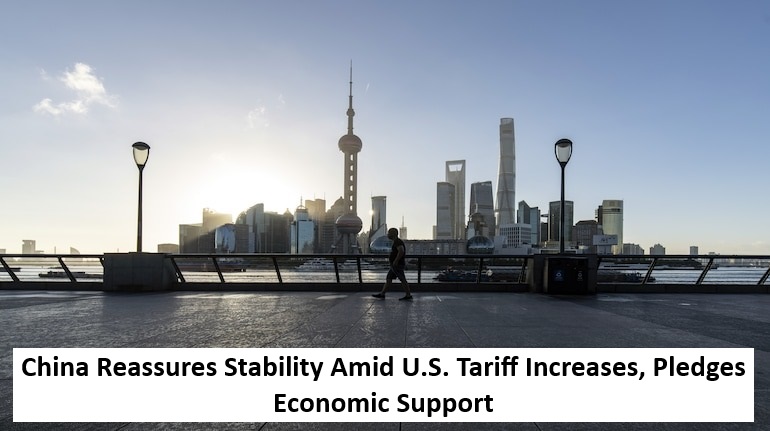
China has called for calm following the latest round of tariff increases imposed by the United States, stating that it has sufficient policy tools to safeguard its economy. While reiterating its openness to negotiations, China emphasized that the country remains resilient despite the trade pressure.
The official newspaper People’s Daily stated in an editorial that the nation must “turn pressure into motivation,” adding that U.S. tariff abuse will not cause significant harm. China responded to the U.S. measures by introducing its own tariffs on American goods and outlined plans to support its domestic economy.
Economic Measures to Cushion Impact
China is preparing stimulus policies to boost domestic demand, which include potential interest rate cuts, liquidity injections, and increased fiscal spending. These moves aim to support economic growth as trade tensions persist. Authorities are also considering raising the fiscal deficit and selling more government bonds.
The editorial confirmed that domestic consumption would become a primary engine for growth, while efforts to maintain market stability and investor confidence will continue.
Currency and Markets React to Trade Tensions
Financial markets showed signs of stress amid the trade conflict. The Hang Seng China Enterprises Index dropped 10.8%, its steepest decline since the global financial crisis. Meanwhile, China’s 10-year bond yields fell by 8 basis points, and the yuan weakened slightly despite a strong reference rate set by the People’s Bank of China.
Investors speculated on a possible currency devaluation, though no official moves have been announced.
Domestic Strategy Prioritized as Trade Talks Loom
The People’s Daily editorial emphasized expanding China’s trade relationships beyond the U.S., citing reduced dependency on American markets. U.S.-bound exports now account for less than 15% of China’s total, down from over 19% in 2018.
Chinese authorities intend to help businesses shift strategies, increase competitiveness, and explore new markets, while still aiming to preserve existing trade ties with the U.S.
Further Policy Updates Expected
The Communist Party’s Politburo is scheduled to meet later in April to assess economic conditions and may announce additional policy steps. Upcoming economic data for the first quarter is expected to show stable performance, supported by early exports and improved investment.
China also plans to engage with U.S. officials during upcoming IMF and World Bank meetings, potentially resuming direct discussions.
China Stresses Long-Term Preparedness
China acknowledged the economic risks posed by a 34% U.S. tariff rate and earlier duties, noting that these could significantly reduce bilateral trade. However, the country expressed confidence in its preparedness, stating that it has been managing trade tensions with the U.S. for eight years.
The editorial reaffirmed a strategic approach focused on long-term stability and readiness for economic challenges.
Read More: Adani’s Green Leap The New 185 MW Wind Milestone You Need to Know About

 Share
Share



